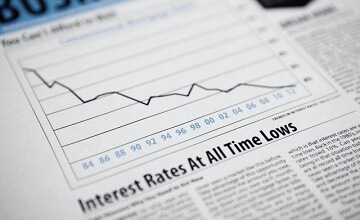Horror $47,000 cost blows up the owning vs. renting debate: ‘More expensive’
Financial advisor Robert Goudie has warned Aussies about the extra costs involved in owning a home and that renting isn’t always dead money. You might have heard the phrase that renting is “dead money” or that you’re just “paying off someone’s mortgage”. When you’re forking out hundreds of dollars a week to keep a roof over your head, that idea can seem fairly depressing. But Consortium Private Wealth financial advisor Robert Goudie wants Aussies to change their mindset when approaching rental payments. He told Yahoo Finance that while property ownership should still be a major goal for Aussies, it’s not always the most ideal situation and you shouldn’t rush into it without understanding what you’re paying. “From what I’ve seen, sometimes it’s more expensive to own the property because no one thinks about the cost of ownership, which is your rates, and your insurance, and your water and service charges. and any maintenance that might be applicable,” he said. He wanted to set the record straight and did the calculations for how much you can save when you rent. Goudie gave an example of Person A who was spending $500 per week on a house worth $750,000 and Person B who bought a $750,000 house and lived in it. Person A would have spent $26,000 in a year on rent. However, the other person, who stumped up an impressive $100,000 deposit and had a 6.5 per cent interest rate on their loan, would have paid $42,250 just on the interest for the mortgage. When you add on rates and insurance costs, the annual bill rises to $47,250, or just short of $910 per week. That means Person A will be able to save $410 more per week than Person B. “People say rent is always dead money. Is interest not dead money? Paying money to a big corporation making billions… I think it is,” Goudie explained to Yahoo Finance. “If rent is dead money, then interest should be considered dead money as well.” Buying might not be the best idea right now The financial advisor wants this general advice to be a warning for Aussies to do the calculations themselves to work out if buying a property is going to be the best financial move for them. “I don’t blame young people for wanting to get on the property ladder… there is that feeling of, ‘If I don’t get in now, [property prices] just keep going up’,” Goudie explained to Yahoo Finance. However, he gave an example of a client who has a home, but the mortgage repayments are so much higher than the rent he used to pay that he now feels “guilty” about having a coffee at a cafe. “That’s not living,” Goudie said. What about capital growth? Yes, there is the very real elephant in the room about the big difference between renting and owning a property. When you have bought a home, you will hopefully be able to live in it when it’s fully paid off. In that case, it’s far cheaper than renting. You can also use it as equity to buy another property or you could sell it for more than what you paid for. Goudie pointed out that not every home that is bought benefits from capital growth and can sometimes go down in value, which is what is being seen in parts of Melbourne this year. But even if it does go up in value, you can’t use that capital growth in the short term to pay for your food or keep the lights on. The financial advisor said his weekly cost comparison was designed purely to compare “apples to apples”. Many Aussies think property ownership is out of reach Goudie admitted that while you might save hundreds of dollars a week by renting, it’s not a long-term and secure way to look at accommodation. “I can’t imagine myself at age 85 renting with the threat of being kicked out at a moment’s notice, because in Australia, we do not have long-term lease or rental agreements,” he said. “There needs to be changes in that space.” But for many Aussies, the idea of owning a home is a distant or even completely out-of-reach concept. According to new research by Australian Housing and Urban Research Institute (AHURI), three in five renters expect they will never own their own home. “This shows a significant shift for Australian renters,” lead researcher Professor Emma Baker of the University of Adelaide. “Whereas previously anyone who desired home ownership believed they would be able to move into that tenure, now more Australians are conscious that this dream may not be a possibility for them.” Property prices have been soaring in cities across Australia at the same time that inflation and stagnant wage growth have impacted many peoples’ wallets. But this isn’t just a young Australian issue either. AHURI’s research found the proportion of people renting in the private market has increased across all age brackets from people in their late teens to their 80s and above. “The rise of renting in Australia is a multigenerational phenomenon,” Professor Baker said. Source: https://au.finance.yahoo.com/news/horror-47000-cost-blows-up-the-owning-vs-renting-debate-more-expensive-053110244.html The information provided in this article is general in nature only and does not constitute personal financial advice.









